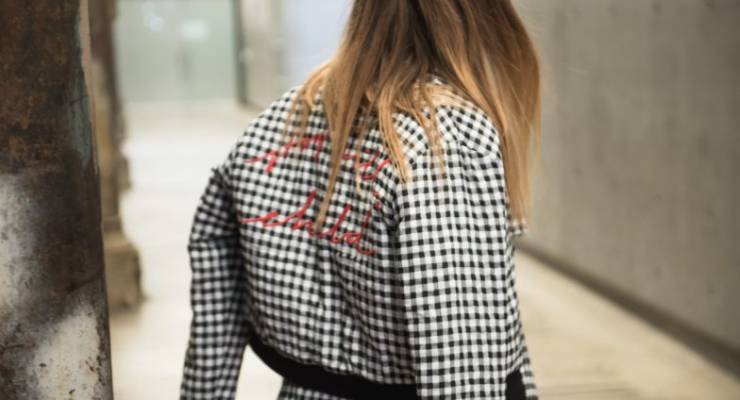
Like them or not, social media influencers have carved out a market for themselves, gaining thousands — and sometimes millions — of loyal followers, who are increasingly becoming their targets for advertising everything from toothpaste to luxury hotels.
The influencer industry is booming, with a 2018 study from the World Federation of Advertisers revealing that 65% of multinational brands planned to spend more of their advertising budget on influencers. And according to a PwC report, “personality-driven marketing” is expected to reach $240 million this year in Australia alone. Across the world, it’s expected to be worth up to $10 billion by 2020.
The gauzy barrier between fan and influencer has prompted authorities across Britain to clamp down on personalities who keep their fans in the dark about sponsorship and endorsement deals. So does this mean that Australia’s advertising watchdog needs to add some bite to its bark?
Britain’s self-regulatory ad watchdog Advertising Standards Authority recently issued cautions to between 200 and 300 influencers over their failure to include disclosures about sponsored content.
The Competition and Markets Authority (CMA), the government authority which has the power to take legal action, then received guarantees from 16 influencers, including singers Ellie Goulding and Rita Ora, model Alexa Chung and popular vlogger Zoella, to abide by all advertising laws. The CMA is monitoring these influencers and if they fall foul of the law again, could be fined or even face a jail sentence of up to two years.
“Influencers can have a huge impact on what their fans decide to buy,” Andrea Coscelli, chief executive of the CMA, says. “People could, quite rightly, feel misled if what they thought was a recommendation from someone they admired turns out to be a marketing ploy.”
What about Australia?
But in Australia, the push for transparency lags behind somewhat, with the Australian Association of National Advertisers (AANA) only introducing a voluntary code in 2017. There are no specific laws for influencers, although they still fall under national consumer law, and the Australian Competition and Consumer Commission (ACCC) can dish out fines for false or misleading statements.
Stephen von Muenster, a Sydney-based lawyer who specialises in media and advertising law, says because there is yet to be a test case before the courts, it’s difficult to determine if current laws are sufficient.
“There are still a lot of influencers who post without including “#ad” or “#spon” but there’s just so many of them that it’s hard for regulators to watch all of them.
“Other media is regulated when it comes to advertising and what they can and can’t say; in radio, you can’t have cash-for-comments anymore but you can still get away with it on social media,” he says. “It’s hiding away in plain sight.”
News Corp reported on April 19 that the ACCC was preparing to pounce on influencers and brands’ undisclosed deals.
An ACCC spokeswoman confirmed to Crikey that “advertising practices on social media platforms are among the enforcement and compliance priorities of the ACCC for 2019”.
She added that influencers have the “same obligations as other forms of advertising or marketing” under Australian consumer law.
“Influencers should not … create an impression that they haven’t received some financial or other benefit for promoting a product or service, when they have.”
Waiting for a big one
Von Muenster believes the ACCC is waiting for a “reasonably large” breach, similar to the ACCC’s recent crack down on fake online reviews.
Ad Standards, the advertising industry body which investigates complaints, said that it had “not received a large number of complaints about influencers and that no complaints have been upheld”.
One of its most recent investigations concerned fashion designer Pip Edwards and a 2018 Instagram post of hers that showed her posing near a Mercedes Benz but failed to disclose her commercial partnership with the car brand. The complaint was made against Mercedes Benz, which shared the image on its own Instagram page, but was dismissed, in part, because Edwards had previously posted about the partnership and that Mercedes Benz did not control or have oversight of what Edwards posts.
“The panel considered that the relevant audience for this post would be familiar with the commercial relationship between Pip Edwards and Mercedes,” the panel stated.
Instagram itself is attempting to clarify the muddled world of sponsored posts and will introduce a new type of post solely for “branded content ads”, although this is being directed more at brands and not influencers.
However, attempts to bring influencers into line — and within the law — might come first from those they need the most: their followers. Social analytics company Sharablee recently completed an extensive report into influencers and their audience and found that “…trust in digital creators is higher than trust in brands [and] digital creators actually give brands a positive halo effect when they partner together”.
But trust in influencers being transparent about being paid or given freebies to promote is no higher than 39%.
Without trust and the all-importance of being considered “authentic” then influencers might not even need to worry about disclosing sponsorship deals they no longer have.








Crikey is committed to hosting lively discussions. Help us keep the conversation useful, interesting and welcoming. We aim to publish comments quickly in the interest of promoting robust conversation, but we’re a small team and we deploy filters to protect against legal risk. Occasionally your comment may be held up while we review, but we’re working as fast as we can to keep the conversation rolling.
The Crikey comment section is members-only content. Please subscribe to leave a comment.
The Crikey comment section is members-only content. Please login to leave a comment.